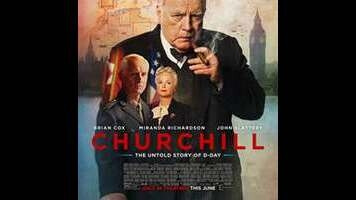Brian Cox blows smoke in the inane World War II drama Churchill

The pathologically middlebrow Churchill portrays the British prime minister during the lead-up to D-Day in the stiffly prosaic style, often associated with British TV productions, that reckons that nothing clears the stale textbook smell out of the room like watching some historical personage put their clothes on. Even the good historical-biographical dramas are guilty of this—the faux candid peek behind the staged pageantry of the past, conveyed through the buttoning of buttons and the lacing of corsets in front of a full-length mirror, because actually showing Abraham Lincoln or whoever shitting, screwing, or doing anything else that requires unsimulated disrobement would be in bad taste. And so, here you have Winston Churchill at 10 Downing Street days before the Normandy landing, standing in his sock garters and his droopy salmon-pink boxer shorts in front of the mirror, revising a speech out loud even as he picks out his trousers. The similarly inclined “Great Man” snoozefest Hyde Park On Hudson at least had the chutzpah to include a scene in which Franklin Delano Roosevelt received the lamest hand job in film history. The closest Churchill director Jonathan Teplitzky (The Railway Man) comes to humanizing his lionized subject is in a brief close-up that shows the British Bulldog fastening his famous zippered shoes—the one aspect of the man’s sartorial image that really merits interest—with the help of a long metal hook. Even his hat, he puts on in slow motion.

 Keep scrolling for more great stories from A.V. Club.
Keep scrolling for more great stories from A.V. Club.